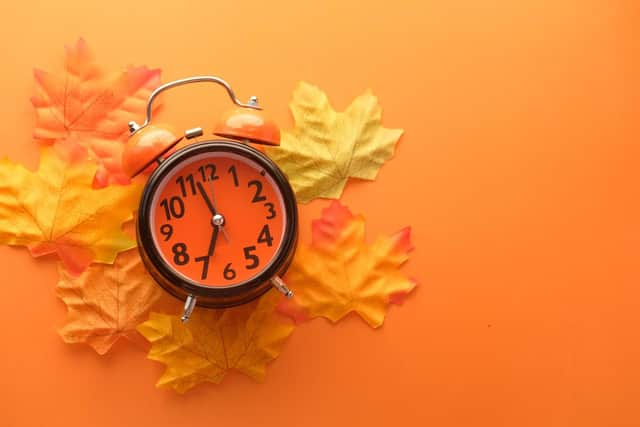When do the clocks go back UK 2022? When does Autumn end? Why do we change the clocks?
Each year, the clocks go forward in Spring and back in Autumn by one hour – yet, despite the annual event many people forget this.
Fortunately, smartphones automatically update the time, making the mistake easier to avoid.
Advertisement
Hide AdAdvertisement
Hide AdCurrently, the UK is operating on British Summer Time (BST) or ‘Daylight savings’ but when the clocks go back we will resume Greenwich Mean Time (GMT).


When do the clocks go back?
The clocks change twice a year, once going forwards and once going backwards.
In Spring 2022, the clocks went forward on Sunday, 27 March.
In Autumn, the clocks will go back an hour on the last Sunday of October at 2:00am – Sunday, 30 October.
The clocks will go forward again next year on Sunday, 26 March 2023.
When does Autumn end?
According to the meteorological calendar, the first day of Autumn was September 1 and the final day will be November 30.
The Met Office, however, states that Autumn began on September 23 as it refers to the astronomical calendar so it will end on December 21.
Meteorological seasons follow the annual temperature cycle, while the astronomical seasons act according to the position of the Earth in relation to the sun.
Advertisement
Hide AdAdvertisement
Hide AdThe meteorological calendar states that spring always begins on 1 March and ends on 31 May.
So the seasons are as follows: Spring (March, April, May), Summer (June, July, August), Autumn (September, October, November) and Winter (December, January, February).
Why do we change the clocks?
Originally the clocks were changed to save energy and get people to take advantage of the longer hours of daylight. After all, why waste the fuel or time when there is more daylight available?
The idea originated in Britain and was proposed by builder William Willett, according to the senior curator for the History of Science at the Royal Observatory Greenwich, Dr Richard Dunn.
Willett suggested the idea from his frustration with working early hours while others were still asleep, which he considered a ‘waste’.
It was the result of Willett’s campaign, that he started in 1907, to get people to stop wasting valuable hours of light in summer months and in doing so save precious fuel like coal during World War I.
By 1916, parliament passed the ‘Summer Time Act’ that saw the creation of British Summer Time.
Comments
Want to join the conversation? Please or to comment on this article.
